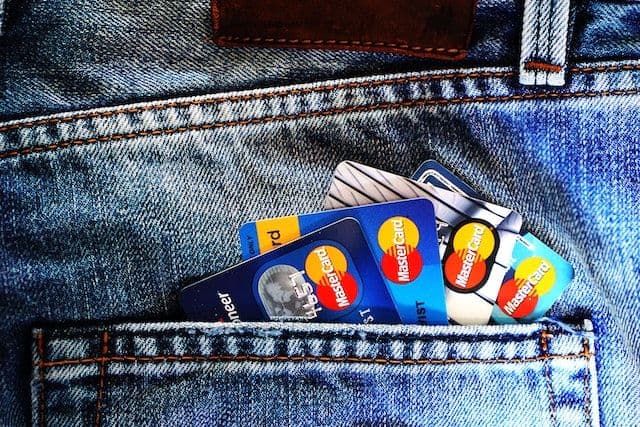Does My Student Loan Affect My Credit Score?

When we’re looking to go to university, we often find ourselves needing to find alternative sources of funding. However, while applying for things like student loans, we don’t really ask ourselves the question, ‘will this affect my credit score?’
Well, good news. Student loans, unlike other types of borrowing, do not appear on your credit file. This means that they do not have the ability to impact your credit score.
However, it is still important to think about building your score while you are a student.
What Is A Credit Score?
Besides being something you are afraid to look at, a credit score is a number that lenders or banks will check if you are ever looking to borrow money. This includes taking out a loan or getting a mortgage. The score demonstrates your creditworthiness, i.e. whether or not you can pay back what you owe.
Anyone who has ever used any kind of financial credit will be assigned a credit score. The score is based on a range of factors. These include the length of time you have had credit, your payment history, applications for new credit, the amount owed, and any missed or late payments. Basically, any financial movement you make marks you on your credit report.
A high score demonstrates that you are a reliable borrower. Lower scores, on the other hand, demonstrate that you might be a high-risk borrower who finds it difficult to handle credit.
Because student loans are a form of debt, it can be a concern whether this loan can affect your score. Luckily, student debt is independent of your credit report.
Why Don’t Student Loans Affect Your Credit Score?
It’s an interesting question to ask, considering by all definitions, student loans are loans which are forms of credit. However, the reality is that student loans do not appear on your credit file because most creditors don’t list them. Therefore they have little to no power to affect your credit rating. This means that when you leave university with a great deal of student debt, it is still possible to have a good credit score as the two things are independent of each other. Unfortunately, the debt still exists, but at least it’s not hindering your financial future immensely.
That said, it is worth noting that having a student loan may come into play if you are applying for a mortgage or loan. Also, if you miss payments on your student loan, than that will show up negatively on your credit score. So, it’s not just a free-for-all.
Lenders may want to know if you have a student loan when determining how much you can borrow. However, many lenders are still happy to provide loans for those with student debts as long as their other borrowing criteria are met.
Can You Build Your Credit Score As A Student?
The answer is yes! In fact, the earlier you start to build your credit, the better. Here are some straightforward ways to boost your credit score as a student.
Get On The Electoral Roll
Registering to vote is one of the easiest ways to boost your credit score. When you’re registered, it is an easy way for lenders to confirm that your personal information is correct.
This simple step can increase your score and better prepare you for future credit applications.
Make Small Purchases Using A Credit Card
Don’t be scared of having a credit card. Using a credit card and paying it back is one of the best ways to start building your score. These transactions show lenders that you can responsibly manage credit. The problem with credit cards is that most people don’t know how to use them properly.
Use your credit card for small everyday purchases such as your supermarket shop or your daily coffee. Paying for everyday items with your credit card is a good way to know that you will be able to pay back what you have borrowed.
Make sure to always live within your means and only make purchases that you know you can pay back. Like, for sure, spoil yourself here and there, but don’t overdo it. Those interest rates can be a killer.
Paying back your credit card bill before accumulating any interest will help you gain points and boost your credit score.
Sign Up To Credit Building Apps
Certain apps exist to help increase your credit score. They do this by building your payment history, improving your affordability profile and showing you how to maintain your score over time.
If you are worried about your current score, try signing up for a platform to help you improve it quickly.
Stay Away From Buy Now, Pay Later (BNPL)
BNPL may seem like a great idea to help you fund your purchases and pay for anything from clothes to laptops over a longer period of time. However, these schemes can be dangerous for your credit score and have a negative impact.
If you use BNPL and make a late payment or borrow more than you pay back, you will knock points off your credit score.
The most sensible thing to do is avoid these schemes completely. If you are unable to afford items that you want or need, try and save up money to buy them. It means you’ll only get to enjoy the item down the line, but at least your credit score won’t take a beating.
Conclusion
While student loans do not directly affect your credit score, it is important to consider building your credit during your time as a student. It’s a great time to take full advantage of the grey area you reside in as a young adult.
Your credit score plays a crucial role in determining your creditworthiness when seeking loans or mortgages in the future. By taking proactive steps to improve your score, being responsible with your finances and making wise credit decisions, you can set yourself up for a strong financial future.